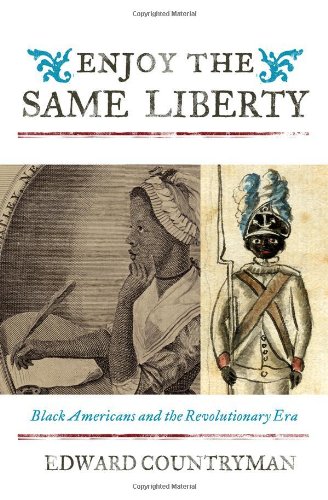
Enjoy the Same Liberty
Black Americans and the Revolutionary Era
کتاب های مرتبط
- اطلاعات
- نقد و بررسی
- دیدگاه کاربران
نقد و بررسی

January 30, 2012
Bancroft Prize-winning Countryman (A People in Revolution) begins with the bleak premise that everywhere explorers and colonizers went, with them they brought slaveryâ"the great unifying colonial institution." Despite a dearth of primary sources, the result of Countryman's research efforts is impressive; the book includes paintings and a map of New York from 1813, and the final third contains a fascinating trove of documents, ranging from the "Virginia Law of Slavery" of 1905, to Phillis Wheatley's poetry and letters, to an excerpt from a 2008 speech by then-Senator Barack Obama. Some of these sources, such as the daily diaries of plantation owner William Byrd II, tell of unimaginable abuse in a matter-of-fact manner. Countryman makes a genuine effort to paint a picture of how excruciating the process of emancipation was in the years following 1776, but although his stated hope was that the book would present how "black people used the opportunities presented to them," the volume is more frequently a profile of black leaders who emerged at the time, from mathematician Benjamin Banneker to Richard Allen, the founder of the Mother Bethel church. Though thoroughly researched and thoughtful, Countryman's latest ultimately amounts to a brief but lifeless examination of a dynamic period in American history.

February 1, 2012
Historian Countryman challenges the historical memory of the founding of our nation, one that presents a heroic portrait of white males and gives scant attention to blacks, most of whom were enslaved. He examines the contradictions inherent in the American Revolution and the ideals of the U.S. Constitution and its protection of slavery, putting the debate in the broader context of eighteenth- and nineteenth-century revolutions throughout the Atlantic region, from Europe to South America, even as slavery blossomed in the same regions. Most compelling is his examination of the choices exercised by blacks in revolutionary America to fight for the insurgents or for the British, to remain on American soil or to take a chance on former slave colonies in Sierra Leone and Liberia. Blacks famous and obscure, from Paul Cuffee to James Forten to Bishop Richard Allen and others, capitalized on opportunities presented by the Revolutionary War to press their own cause of freedom. Without the effort of revolutionary-era blacks, slavery might have continued unchallenged for a longer period of time in the U.S.(Reprinted with permission of Booklist, copyright 2012, American Library Association.)

























دیدگاه کاربران